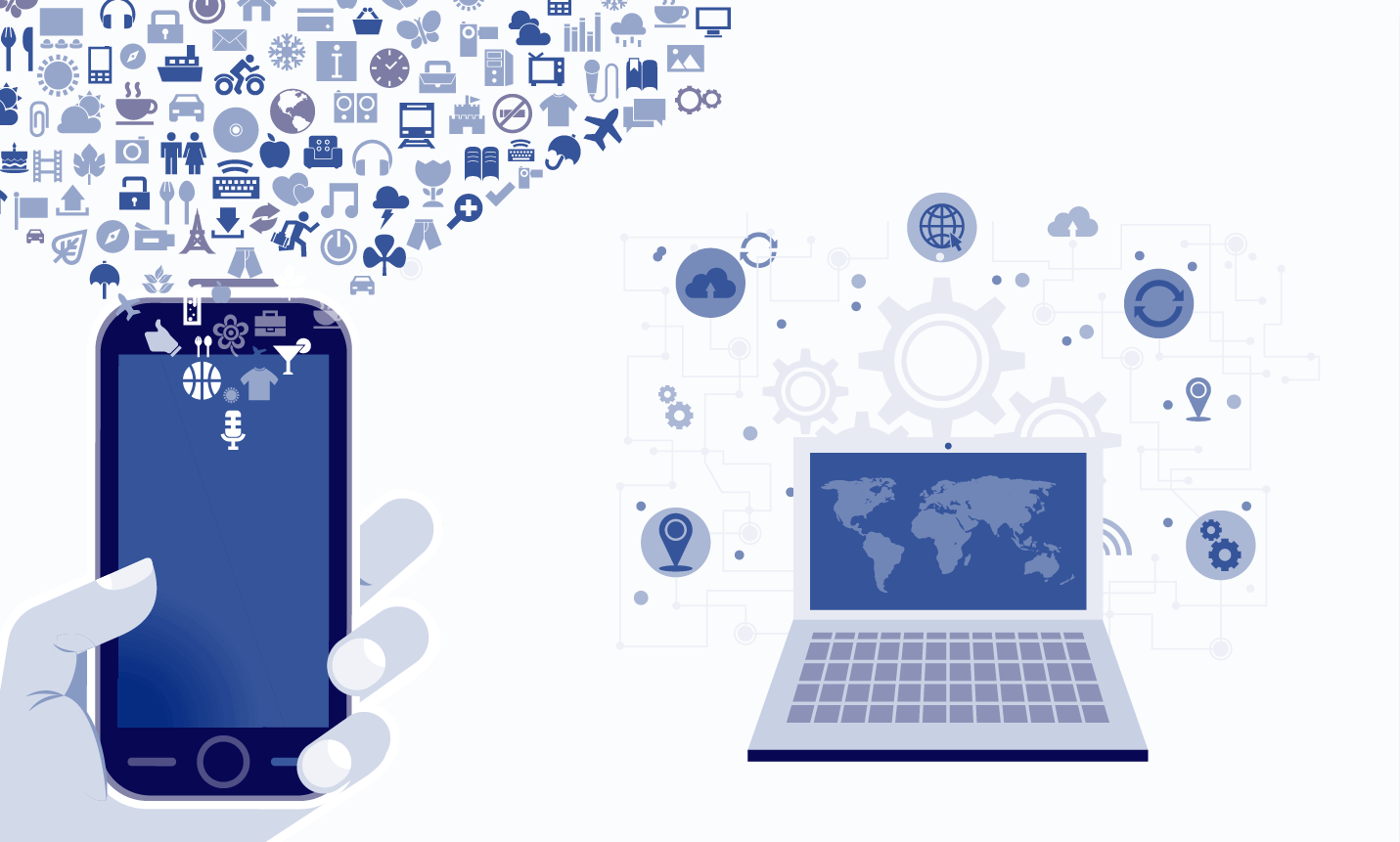Healthcare management encompasses a diverse set of responsibilities, from overseeing clinical operations to managing staff, finances and technology. Therefore, it’s only logical that healthcare practitioners are usually the linchpin that holds the intricate healthcare system together.
They are responsible for orchestrating the seamless operation of healthcare facilities with the imperative of providing optimal patient care. However, digital technologies are currently changing all that. For the better.
The integration of mobile data collection has precipitated a transformative shift in the healthcare industry. Gone are the days of paper-based forms and manual record-keeping processes. Today, healthcare managers and professionals are embracing mobile apps and devices to collect, manage and analyse patient data.
This revolution is not only improving the efficiency of healthcare management but also enhancing patient care, research and decision-making. So, how does mobile data collection work in healthcare and how is it revolutionizing healthcare management?
Contents
- 1 Understanding Mobile Data Collection in Healthcare
- 2 How Mobile Data Collection Revolutionizes Healthcare Management
- 2.1 It Enhances Real-Time Data Access
- 2.2 Mobile Data Collection Enhances Patient Care and Engagement
- 2.3 Mobile Data Collection Optimizes Resource Allocation
- 2.4 It Empowers Remote Patient Monitoring and Chronic Disease Management
- 2.5 Public Health Surveillance and Outbreak Management
- 2.6 Data Security and Privacy
- 2.7 It Unlocks Data-Driven Insights
- 3 Conclusion
Understanding Mobile Data Collection in Healthcare
Mobile data collection refers to the process of gathering information or data using mobile devices such as smartphones and tablets. This is contrasted to traditional paper-based methods of data collection which do not allow individuals to input data directly into digital forms in real-time.
In an era defined by connectivity and technological innovation, mobile data collection has emerged as a powerful tool with the potential to revolutionize how organizations gather, process, and utilize information. From field surveys and healthcare management to market research and disaster response, it is changing the way data is collected.
Mobile data collection leverages the ubiquity of smartphones and tablets to empower individuals and organizations to collect data on-the-go. Traditional paper-based methods are time-consuming, error-prone and often result in delays between data collection and analysis. It bridges this gap by allowing data to be entered digitally, thereby eliminating transcription errors and enabling real-time analysis.
Read Also: How ODK Revolutionizes Healthcare Data Collection
How Mobile Data Collection Revolutionizes Healthcare Management
It Enhances Real-Time Data Access
Traditional data collection methods don’t have an element of immediacy in them. Files containing healthcare information are cumbersome to skim through and this almost usually leads to errors and time-wastage.
Mobile data collection is changing all that. It’s heralding a new era of real-time access to critical healthcare information. With the tap of a finger, healthcare professionals can instantly record patient data including vital signs and treatment plans. This immediacy ensures that accurate information is readily available, thereby reducing the risk of errors associated with manual data entry.
Mobile Data Collection Enhances Patient Care and Engagement
At the heart of healthcare management, is the goal to deliver patient-centred care that is personalized, timely and effective. Mobile data collection enables healthcare managers to achieve this goal by enabling the collection of patient-reported outcomes and feedback directly through digital platforms.
This wealth of patient-generated data provides a comprehensive overview of individual health journeys. This therefore allows healthcare professionals to tailor treatment plans, optimize care pathways and promote proactive interventions. Ultimately, patient engagement is elevated as individuals become active participants in their care processes.
This level of engagement fosters a stronger patient-provider relationship and enables healthcare workers make informed decisions based on real-time feedback.


Mobile Data Collection Optimizes Resource Allocation
Efficient resource allocation is at the core of healthcare management. This is because optimizing staff, equipment and facilities can directly impact patient care. Mobile data collection shines in this aspect.
It offers a dynamic solution for healthcare managers to monitor and manage resources in real time. Whether it’s tracking the availability of medical equipment, managing staff schedules or predicting patient inflow, the ability to gather and analyse data on-the-go empowers managers to make informed decisions promptly.
Consequently, the result is a smoother and more efficient healthcare operation that minimizes waste and maximizes outcomes.
It Empowers Remote Patient Monitoring and Chronic Disease Management
One thing that the COVID 19 pandemic has taught us is that remote working is not the future but the present. The healthcare industry is not any different. The rise of telehealth and remote patient monitoring has been accelerated by the capabilities of mobile data collection.
Healthcare professionals can now remotely track patient vitals, treatment plans and recovery progress through wearable devices and mobile apps. This not only facilitates better management of chronic conditions but also reduces hospital readmissions and enhances the overall quality of care.
Consequently, doctors can proactively intervene based on real-time data trends, thereby ensuring timely adjustments to treatment protocols.
Public Health Surveillance and Outbreak Management
Mobile data collection has proven invaluable in the realm of public health surveillance and outbreak management. During the COVID-19 pandemic for instance, healthcare workers used mobile apps to track the spread of the virus, gather data on symptoms and monitor quarantine compliance.
This therefore enabled healthcare workers to swiftly respond to emerging trends and make informed decisions based on real-time data. This has helped contribute to effective containment measures in the world.
Data Security and Privacy
As with any digital transformation, data security and compliance in the healthcare industry are critical considerations. Traditional data collection methods were a ticking time-bomb as far as data protection is concerned. Patient files usually get lost all the time and there is always the risk of unauthorized access to patient and staff data.
Mobile data collection has changed all that. Data collection and storage devices implement robust security measures that protect sensitive patient information. Additionally, they adhere to healthcare regulations like HIPAA thereby maintaining patient trust and data integrity.
It Unlocks Data-Driven Insights
The power of mobile data collection extends beyond immediate patient care, to strategic decision-making. Healthcare managers can harness the collected data to identify trends, track outcomes, and evaluate the effectiveness of interventions.
Additionally, data analytics tools allow for deeper insights into operational efficiencies, patient satisfaction and areas of improvement. These insights pave the way for evidence-based management strategies. This ultimately fosters a culture of continuous improvement within healthcare organizations.
Read Also: 8 Essential Training Programs for Healthcare Workers
Conclusion
The healthcare landscape is rapidly evolving, and mobile data collection is at the forefront of this transformation. As healthcare managers increasingly adopt mobile apps and devices, the industry is witnessing improved patient care, streamlined operations, and data-driven decision-making. By embracing this revolution, healthcare managers can leverage real-time insights to enhance resource allocation, tailor treatment plans, and respond effectively to emerging healthcare challenges. Mobile data collection is not just a technological trend; it’s a paradigm shift that holds the promise of a more efficient, patient-centred, and data-powered future for healthcare management.
As digital technologies continue to evolve, we can only expect healthcare data collection to become even more patient-centric, data-driven and transformative in the years to come. It’s therefore crucial to upskill in order to harness the full potential of mobile data collection. Indepth Research Institute (IRES) offers corporate training programs on mobile data collection tools that would help you harness their power for successful healthcare outcomes . Our training programs are specially curated and tailor-made to meet your needs, requirements and challenges. By acquiring and refining these skills, you will position yourself for success in today’s data-driven healthcare environment. Register now and be the best version of yourself!
We have a firm belief that every organization has a unique purpose only they can fulfil in this world. We work with you in organizing your resources to exploit opportunities so that you can fulfil your purpose and realize full potential. We build the capacity of people, processes and systems for organizational success and growth as well as nurturing a thriving ecosystem.
Ready to enhance your skills and boost your career? Explore our corporate training programs now and start your journey to success.








Comment here